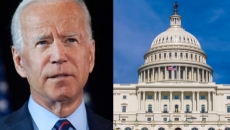Canada's grocery sector needs more competition to help keep food prices down and encourage new entrants, the country's competition watchdog has found.
In a highly anticipated study released Tuesday, the Competition Bureau said concentration in the grocery industry has increased in recent years and the largest grocers have grown the amount they make on food sales.
Most Canadians buy groceries in stores owned by a handful of grocery giants, with Canada’s three largest grocers — Loblaws, Sobeys, and Metro — collectively reporting more than $100 billion in sales and $3.6 billion in profits last year, the study found.
"We saw Canada’s largest grocers’ food gross margins generally increase by a modest yet meaningful amount over the last five years," it said. "This longer-term trend pre-dates the supply chain disruptions faced during the pandemic and the current inflationary period."
The Competition Bureau said this signals the need for more competition in Canada’s grocery industry.
"Canada needs solutions to help bring grocery prices in check," the study said. "More competition is a key part of the answer."
The competition watchdog proposed four recommendations to improve competition and lower prices, including an innovation strategy to support new grocery businesses and expand consumer choice.
It also recommends governments encourage the growth of independent grocers and the entry of international grocers into the Canadian market, standardize unit pricing to help Canadians easily compare grocery prices, and curb real estate practices in the industry that limit competition, such as putting covenants on sold land that prevents any new grocer from operating there.
Meanwhile, the Bureau said it also needs to approach its work in the grocery industry with "heightened vigilance and scrutiny" to ensure Canadians benefit from greater choice and more affordable groceries.
"We need to thoroughly and quickly investigate allegations of wrongdoing, and we need the power to act when issues arise," the study said.
In a survey of consumer attitudes and opinions about the grocery sector, some Canadians said the country's laws don't go far enough to stop deals that are bad for competition, while others felt the Competition Bureau has just not done a good enough job enforcing those laws, the study said.
When the Competition Act was introduced in 1986, there were at least eight large grocery chains across Canada, the study said. Each was owned by a different company.
Today there are five large chains that operate in Canada: Loblaw, Sobeys, Metro, Costco and Walmart.
The competition watchdog committed to taking steps to better promote competition in the Canadian grocery industry, including providing a pro-competitive perspective to support the implementation of Canada’s grocery code of conduct.
It also committed to revisiting the findings of its study in three years to assess the progress on recommendations it has made to government.
The highly concentrated nature of Canada's grocery's sector has come under intense scrutiny in recent years.
The big three grocery chains have been embroiled in an alleged bread price-fixing scheme, which observers say has triggered distrust of the grocery industry.
The large grocers have also been accused of wage fixing after simultaneously scraping pandemic bonuses for front-line workers.
It's behaviour the House of Commons industry committee likened to "cartel-like practices" in a June 2021 report.
Yet Canada's grocers have argued that consolidation increases efficiencies and provides consumers with more value.
Grocery executives have vehemently denied accusations of price gouging and so-called greedflation, saying their margins on food have remained modest — despite soaring profits.
Yet the House of Commons agriculture committee has floated the idea of a windfall tax on those profits.
In a report on grocery affordability tabled earlier this month, it said if the Competition Bureau finds evidence that large grocery chains are generating excess profits on food items, the government should consider a windfall profits tax to "disincentivize excess hikes in their profit margins for these items."
Meanwhile, a grocery industry committee is continuing to hammer out a new code of conduct that would help level the playing field between large grocers, independents and suppliers.
Food prices have recorded a massive spike in Canada since November 2021 — the last month for which grocery inflation was under five per cent.
Since then, grocery prices have consistently risen by close to double digits, peaking at an 11.4 per cent year-over-year price hike last September and again in November before easing somewhat in recent months.
Statistics Canada said Tuesday grocery prices rose nine per cent year over year in May.






